-
Can Root Canals Last a Lifetime?
Root Canals, a Tooth-Saving Procedure
A root canal is a standard dental procedure intended to rescue teeth that have become badly infected or significantly decayed. However, patients often wonder: how long does a root canal last? Understanding the factors that influence the permanence of a root canal and the steps that can be taken to maximize its lifespan is crucial for maintaining oral health and making educated decisions about dental care. Continue reading “Can Root Canals Last a Lifetime?”
-
The Link Between Oral Health and Overall Well-Being
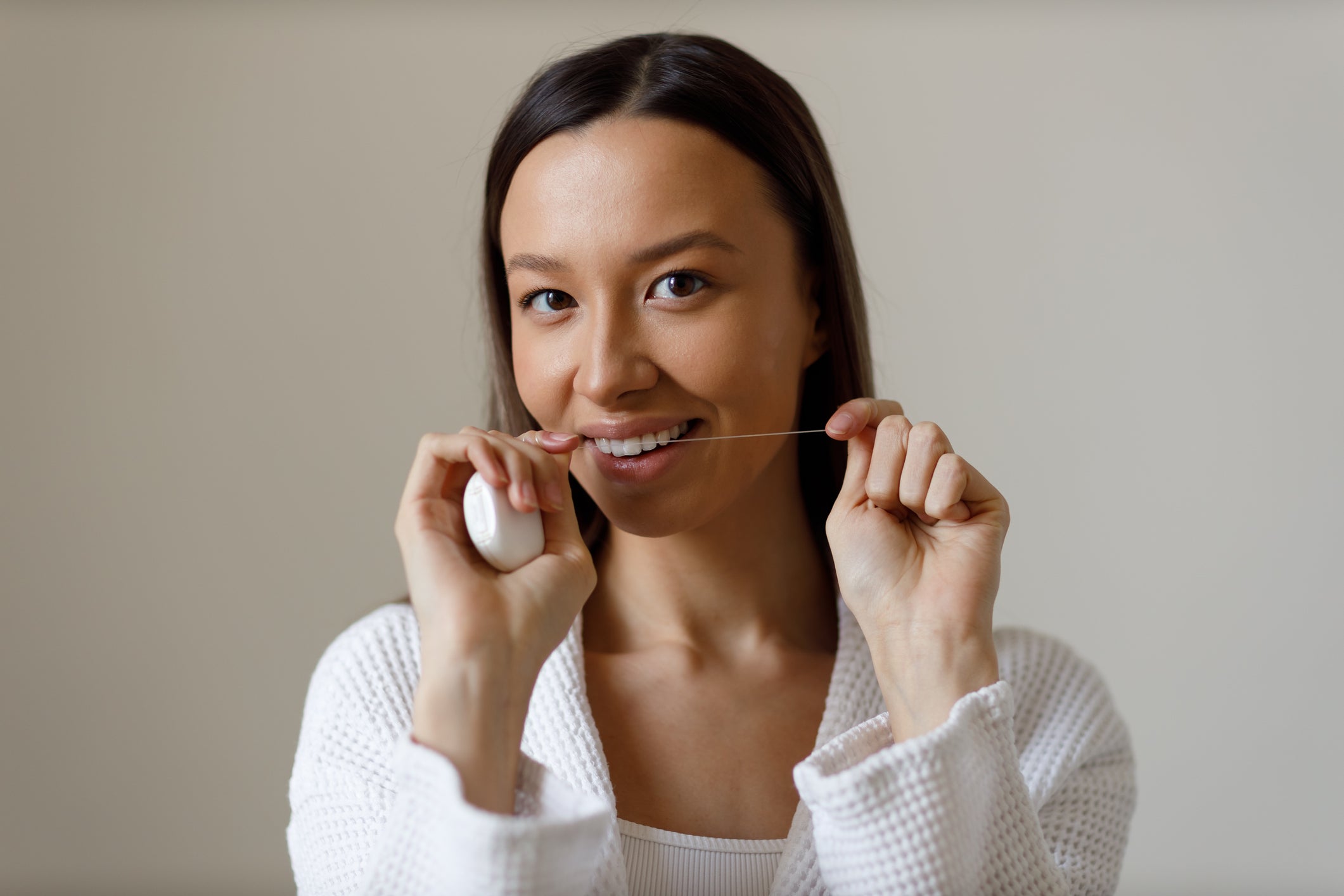
Woman caring for her dental health.
Good dental hygiene provides an extra boost of confidence. It’s easy to smile and share in conversations when you know your teeth are at their best. But aesthetics isn’t the only reason that you should be keen on keeping your mouth spic and span. Your overall wellness can depend on good dental routine, along with regular checkups and cleanings at your dentist. Let’s look at some of the different ways a healthy mouth can help you live a better life.
A Stitch in Time
Maintaining good dental hygiene practices, such as daily brushing and flossing, combined with regular dental checkups, can help you avoid issues such as cavities, gum disease and tooth decay. Left unchecked, these conditions can worsen to discomfort, infection, and tooth loss. Taking a proactive approach to your dental routine is the best way to stop problems before they can start.
Good For the Wallet
Fixing a serious dental problem is much more expensive than preventing the problem in the first place. The average root canal can cost anywhere from $700 to upwards of $2,000, depending on the tooth location. Dentures or dental implants cost even more. You can save yourself a headache, and a toothache, by proactively engaging in good dental hygiene.
For Your Health
Bad dental hygiene has been linked to serious health problems. Mouths are full of various types of bacteria, most of them harmless. But bacterial buildup from gum disease can contribute to bacteria entering the bloodstream and causing endocarditis, an infection of the inner lining of the heart’s chambers and valves. There is also a link between cardiovascular disease and gum disease, though scientists do not yet fully understand the connection. Inhaling the excess bacteria resulting from poor dental hygiene can even lead to respiratory disease and pneumonia.
Communication Matters
Your smile isn’t just for show; it’s an essential tool for communication. Dental problems like missing teeth can affect the way you talk, potentially causing confusion and eroding your social confidence. Maintaining proper oral health can help ensure your message stays on track.
Mental Health
Experiencing pain in your mouth is more than just an inconvenience. Dental problems can cause psychological issues and result in lower feelings of self-worth. On the other hand, a healthy smile can boost your confidence and increase your overall happiness.
Looking Out for Baby
For expectant mothers, oral health during pregnancy is crucial. Poor oral health has been associated with preterm birth and low birth weight. Hormonal changes during pregnancy can make women more susceptible to dental issues, underscoring the importance of dental care during this critical time.
The link between good oral health and overall well-being is undeniable. It’s not just about a dazzling smile; it’s about your physical, mental, financial, and emotional health. Park 56 Dental is here to be your partner in dental wellness. Voted NYC’s best dentist, we specialize in pediatric, prosthodontics, endodontics, oral surgery, Invisalign®, emergency, and sedation dentistry. Don’t skip those dental appointments. Keep up with your daily oral hygiene routine and address any oral health concerns promptly. Your smile reflects your overall well-being, so let us help you make it a healthy one.
-
How Chronic Illnesses Can Affect Oral Health
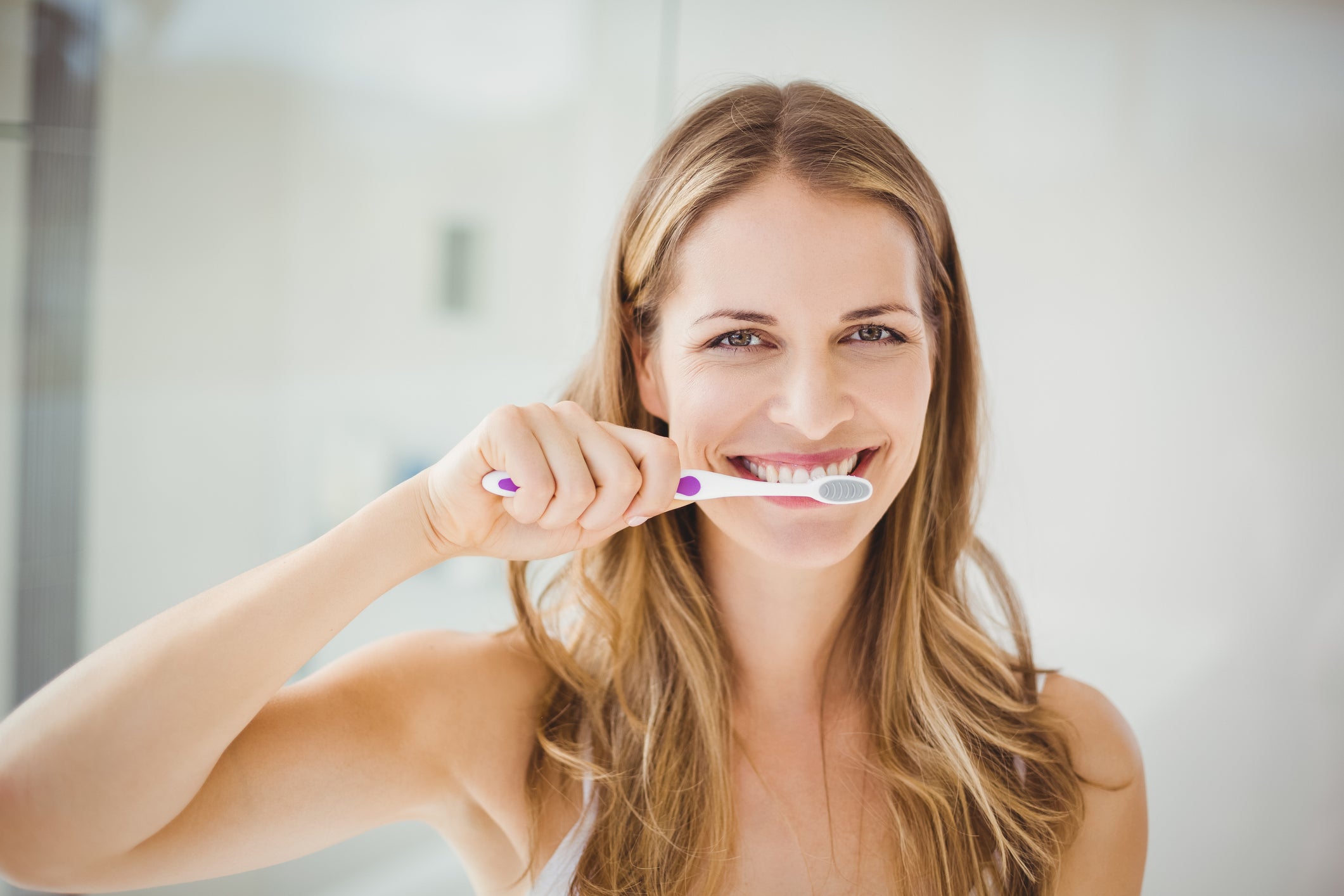 Woman taking care of dental health by brushing teeth.
Woman taking care of dental health by brushing teeth.Oral Health and Overall Health
Did you know that the health of your mouth and the overall health of your body are connected? In fact, there is a bidirectional relationship between chronic illness and oral health. Some chronic diseases are directly associated with oral health issues, either causing or being caused by them. In other cases, there’s an indirect relationship, or shared risk factors. Let’s take a look at how chronic illnesses can affect oral health.
Chronic Diseases are Leading Causes of Death and Disability
Conditions like diabetes, heart disease, respiratory disease, cancers, and obesity can all be linked with poor oral health. Because oral health conditions are often chronic, they can happen alongside other chronic conditions. Unfortunately, people with more than one chronic condition tend to have worse long-term health outcomes than those who only have one chronic condition. Prevention is the key to good health, and maintaining good oral health care can help prevent chronic diseases or improve the outcome for those who suffer from them.
Preventing Gum Disease Can Improve Health
Gum disease is very common, affecting about 75 percent of adults in the United States. If left untreated, gum disease can advance and increase the risk of serious health issues, like diabetes, heart disease/stroke, lupus, oral cancer, organ transplant, and rheumatoid arthritis. Fortunately, when detected early, gum disease can be reversed through good oral hygiene and regular dental care.
How Different Conditions are Connected
- Diabetes, periodontal disease, and tooth decay are interconnected. Though more research is needed, there is evidence to suggest that periodontal disease and tooth decay can exacerbate type 2 and gestational diabetes. This probably occurs because these conditions increase inflammation and blood sugar levels. By the same token, people who have diabetes are at higher risk of infections that can cause tooth decay and periodontal disease.
- Oral health issues may be associated with heart disease. Studies show that periodontal disease and tooth decay may increase a person’s risk of heart disease, or worsen existing heart conditions, by causing inflammation and damaging blood vessels.
- Tooth decay and periodontal disease may be associated with respiratory disease. There are studies that suggest that by causing an increase in bacteria, periodontal disease and tooth decay can increase the risk of respiratory conditions, including emphysema, pneumonia, and COPD, due to bacteria from the mouth colonizing in the respiratory tract. People at highest risk include older people, those who wear dentures, and people with decreased immune system function.
- Periodontal disease and tooth decay may be linked to some cancers. Even after controlling for other risk factors, like smoking and diet, there is evidence to suggest that oral health problems may be connected to cancers like lung, pancreatic, and head/neck cancers. In one study, a 35 percent increased risk for blood cancer and 21 percent increased risk for cancer in general for men with periodontal disease, and another suggests that there is also a 63 percent increased risk of pancreatic cancer. Still another study suggests a 43 percent higher risk of esophageal cancer and a 52 percent higher risk of stomach cancer for those with periodontal disease, as compared to people with healthy gums.
- Obesity may increase the risk of oral health issues. The result of preliminary research on obesity and oral health speculates that secretions from adipose tissue increase the risk of inflammation, decreasing immunity as well as blood flow to the gums.
Talk to Your Dentist About Your Medications
Sometimes, the drugs prescribed for chronic illnesses can cause side effects that impact their oral health. For instance, swollen and bleeding gums, along with dry mouth can be side effects of medications for hypertension and heart conditions. Some drugs for high blood pressure can cause gum overgrowth, which can lead to decay and progressive gum disease. Because inflamed gums bleed easily, there is also a risk for ulceration and soreness. Other medications for hypertension can reduce saliva production, putting patients at risk for dry mouth and tooth decay. Heart medications like anticoagulants and blood thinners can raise a patient’s risk for prolonged bleeding, and can cause gums to bleed during brushing. There is also a risk, with these medications, of post-extraction bleeding or bleeding during cleaning. Your dentist might want to talk to your doctor about changing your medication.
Partner with Park 56 for a Healthy Mouth
If you’re looking for a dentist in New York, why not choose the dentist voted best in the city? At Park 56 Dental Group, we offer pediatric, prosthodontics, endodontics, oral surgery, Invisalign®, emergency, and sedation dentistry, all at the highest level of treatment. We serve the Midtown, Central Park, Upper East Side, Park Avenue, and all surrounding Manhattan and New York areas, with a patient-centered practice that has hours to fit your schedule. Schedule your complimentary consultation today by contacting us online or calling us at (212) 826-2322.
-
How Your Teeth Can Affect Your Sleep Quality

How is the quality of your sleep?
Sleep is important to our health in many ways, and a lack of it can diminish our concentration, leave us fatigued, and cause headaches. You may be suffering from broken sleep and not even know it, but your dentist can spot clues of sleep disturbance by just examining your mouth. How are oral health and sleep connected? Read on to learn the links between poor dental health and poor sleep.
The Sleep-Mouth Connection
- Periodontal disease can be exacerbated by poor sleep. That’s because poor sleep leads to inflammation in the body that impacts the health of your gums. By the same token, painful tooth and gum infections can keep you awake, creating a vicious cycle.
- Bruxism, grinding or clenching your teeth, can disrupt your sleep. It can also damage your teeth and lead to problems with your jaw or bite. To reduce bruxism, reduce stress, and create a relaxing bedtime routine.
- Another stress-related sleep disruptor is the presence of canker sores. These can be caused by anxiety and stress, and can make it hard to sleep.
- Insomnia can contribute to dry mouth. When you’re awake in the night, the amount of saliva in your mouth can be reduced. This can lead to dry mouth, which increases the number of bacteria in your mouth and contributes to tooth decay, as well as bad breath. Dry mouth, in turn, can be uncomfortable and cause sleeplessness.
- Sleep apnea starts with trouble breathing. It can cause snoring and interfere with a person’s ability to get quality sleep. It can also lead to temporomandibular joint (TMJ) issues, which can cause more restlessness.
Improving Your Oral Health and Your Sleep
What can you do to fix these issues, have a healthy mouth, and get a good night’s sleep? Start with good oral hygiene, brushing twice a day and flossing daily, to prevent plaque buildup and reduce your risk of gum disease and tooth decay. Follow up with a rinse, for extra protection. Then talk to your dentist about issues that may be affecting your sleep. You can get protective appliances to keep you from grinding your teeth, a night guard for sleeping, and a less noticeable appliance to wear during the day. Your dentist can also help you find solutions for sleep apnea, including custom-made oral sleep appliances.
Partner with Park 56 to Protect Your Teeth
If you’re looking for a dentist in New York, why not choose the dentist voted best in the city? At Park 56 Dental Group, we offer pediatric, prosthodontics, endodontics, oral surgery, Invisalign®, emergency, and sedation dentistry, all at the highest level of treatment. We serve the Midtown, Central Park, Upper East Side, Park Avenue, and all surrounding Manhattan and New York areas, with a patient-centered practice that has hours to fit your schedule. Schedule your complimentary consultation today by contacting us online or calling us at (212) 826-2322.
-
Foods that Naturally Help Prevent Cavities

Healthy food for healthy teeth.
Avoiding Cavities
You have heard since childhood that eating too many sugary sweets will give you cavities. As an adult, you might even be aware that simple carbs, dried fruit, and acidic foods can all lead to the formation of cavities. What you may not know, though, is that you can be proactive in what you eat, and consume foods that actually prevent cavities instead of just avoiding foods. Read on- we’ve got the scoop on eating foods that are good for your teeth.
Healing Cavities
If you think about the human body, it’s pretty amazing, in the ways it heals itself. Our immune systems rush to repair damage caused by a wound or injury, which is remarkable. Did you know that the mouth can heal itself, too? Saliva helps remineralize your teeth and stop tooth decay in the early stages. However, as with other part of the body, the mouth’s healing process requires the support of the right vitamins and minerals. To heal cavities before they take hold, eat foods rich in the following nutrients:
- Calcium
- Vitamin D
- Vitamin K2
- Magnesium
- Phosphorus
- Xylitol
Understanding Cavities
Do you know how cavities form? It’s a complex process, and can take days, weeks, or even months. First, plaque forms when bacteria and food particles coat the surface of the tooth and are allowed to remain there. Plaque buildup increases as the plaque is fed by carbohydrates like sugars or bread, and as this happens, the plaque excretes acids that wear away at the tooth. If this is allowed to continue, the acid results in cavities, which are holes in the teeth. Once you have cavities, it makes it easier to spread infection and harder to maintain dental hygiene, creating a vicious cycle. That’s why it’s so important to fill your diet with foods that counteract cavities.
Foods that Help Prevent Cavities
While simple starches fuel cavity-causing bacteria, certain foods and drinks strengthen your teeth and lower the risk of cavities by reducing unhealthy bacteria in your mouth. Eggs and dairy provide vitamin D, and yogurt boosts immunity with probiotics. Another benefit of dairy foods, like milk, cheese, and yogurt, is that they’re rich in calcium, which strengthens bones and teeth. Other calcium rich foods include canned sardines and salmon (with edible bones), almonds, leafy greens, broccoli, seeds, beans and lentils, rhubarb, figs, and amaranth. Vitamin K2 helps the body move calcium from the bloodstream to bones and teeth, and this nutrient can be found in beef or chicken liver, chicken breast, butter, sauerkraut, ground beef, and salami. Beans are rich in phosphate, which helps remineralize teeth, and another nutrient that helps with this process is potassium, found in avocados. The magnesium you need to support healthy teeth is found in leafy greens, nuts and seeds, whole grains, quinoa, soy, tofu, and avocado, and blackstrap molasses. Sweet potatoes are very high in vitamin A, which promotes salivary function and balances oral pH and reduces cavity-causing bacteria. Tea also reduces harmful bacteria and drinking it can prevent cavities, but it’s also important to drink plenty of water, to rinse debris from your teeth throughout the day.
Providing Support to Your Teeth
Remineralizing your teeth requires preventing tooth decay from disrupting the natural remineralization process. In addition to a healthy diet, there are some other best practices that can help:
- Brush your teeth twice a day. Using gentle circles angled at your gums, brush with a soft-bristled toothbrush to help remove harmful bacteria from your teeth.
- Floss at least once a day. Floss with string floss or use an irrigator. Better yet, use both, to reduce double the plaque buildup.
- Use good toothpaste. High-quality fluoride toothpaste, approved by the American Dental Association (ADA), can help with remineralization.
- See your dentist regularly. Visiting your dentist twice a year for a deep cleaning and an exam can help catch oral health issues before they become problems.
Partner with Park 56 to Protect Your Teeth
If you’re looking for a dentist in New York, why not choose the dentist voted best in the city? At Park 56 Dental Group, we offer pediatric, prosthodontics, endodontics, oral surgery, Invisalign®, emergency, and sedation dentistry, all at the highest level of treatment. We serve the Midtown, Central Park, Upper East Side, Park Avenue, and all surrounding Manhattan and New York areas, with a patient-centered practice that has hours to fit your schedule. Schedule your complimentary consultation today by contacting us online or calling us at (212) 826-2322.
-
Acid Reflux and Your Teeth

Acid Reflux.
Do you ever get heartburn? Most people do, with about ten percent of Americans suffering daily from the discomfort this condition causes. While heartburn is common, it’s not actually natural, and it’s caused by a disorder called acid reflux or gastro esophageal reflux disease (GERD). And while the most well-known symptom of acid reflux is heartburn, that’s far from the only way this problem affects the body. In fact, chronic acid reflux can be very hard on your teeth. Let’s look at why, and what you can do about it.
First, what is acid reflux? When your digestive system is working the way it’s supposed to, you swallow and your food travels through the esophagus to the stomach. The stomach has acids that digest the food, but there is a muscle that connects the stomach and esophagus, and it closes to keep the food and acid from going back up the esophagus- the wrong way. In people suffering from GERD or acid reflux, this muscle is weak, and it allows the food and stomach acid to travel back up, causing burning in the chest, neck and throat, and a bitter acidic taste.
If you think about the mechanics of acid reflux, you can probably already deduce why this condition would cause problems for your teeth. Your teeth are covered with tooth enamel, which is the strongest substance in the body and protects the teeth from things like bacteria, chemicals, and extreme temperatures. However, over time, this enamel and begin to erode. Stomach acid hastens that erosion, in effect dissolving the enamel and leaving your teeth vulnerable to decay. In fact, in some cases, stomach acid can dramatically decrease the size of your teeth.
How do you know if acid reflux is damaging your teeth? You might notice that your teeth are more sensitive, especially to hot, cold, or sweet foods and beverages. Your teeth also might chip, seem thinner or smaller, or have sharp edges. You may experience pain and irritation in your mouth, and your teeth may become discolored or dark.
If you have acid reflux, what can you do to protect your teeth from these problems?
- Start by controlling your acid reflux. Talk to your primary care physician or a gastroenterologist about lifestyle changes you may need to make. Things like removing trigger foods from your diet, quitting smoking, losing weight, and sleeping with your head raised may all be recommended. You may also choose to use antacids to control your symptoms, but do this sparingly, as this type of medication can cause dental problems.
- Be careful with your teeth. Drink through a straw if you’re drinking anything acidic, like soda, coffee, or juice. Drink water with your meals, and drink water between meals, to continually rinse your mouth. Brush with fluoride toothpaste, but avoid brushing for 30 minutes to an hour after eating, so that you don’t brush your enamel when it’s softened. Eat a piece of cheese or drink some milk after your meals, to neutralize the acid.
- See your dentist regularly. Your dentist can alert you to signs of tooth erosion, and can also offer a variety of treatments to help restore your enamel and offset the damage of acid reflux.
If you’re looking for a dentist in New York, why not choose the dentist voted best in the city? At Park 56 Dental Group, we offer pediatric, prosthodontics, endodontics, oral surgery, Invisalign®, emergency, and sedation dentistry, all at the highest level of treatment. We serve the Midtown, Central Park, Upper East Side, Park Avenue, and all surrounding Manhattan and New York areas, with a patient-centered practice that has hours to fit your schedule. Schedule your complimentary consultation today by contacting us online or calling us at (212) 826-2322.
-
Why Your Gum Line Recedes
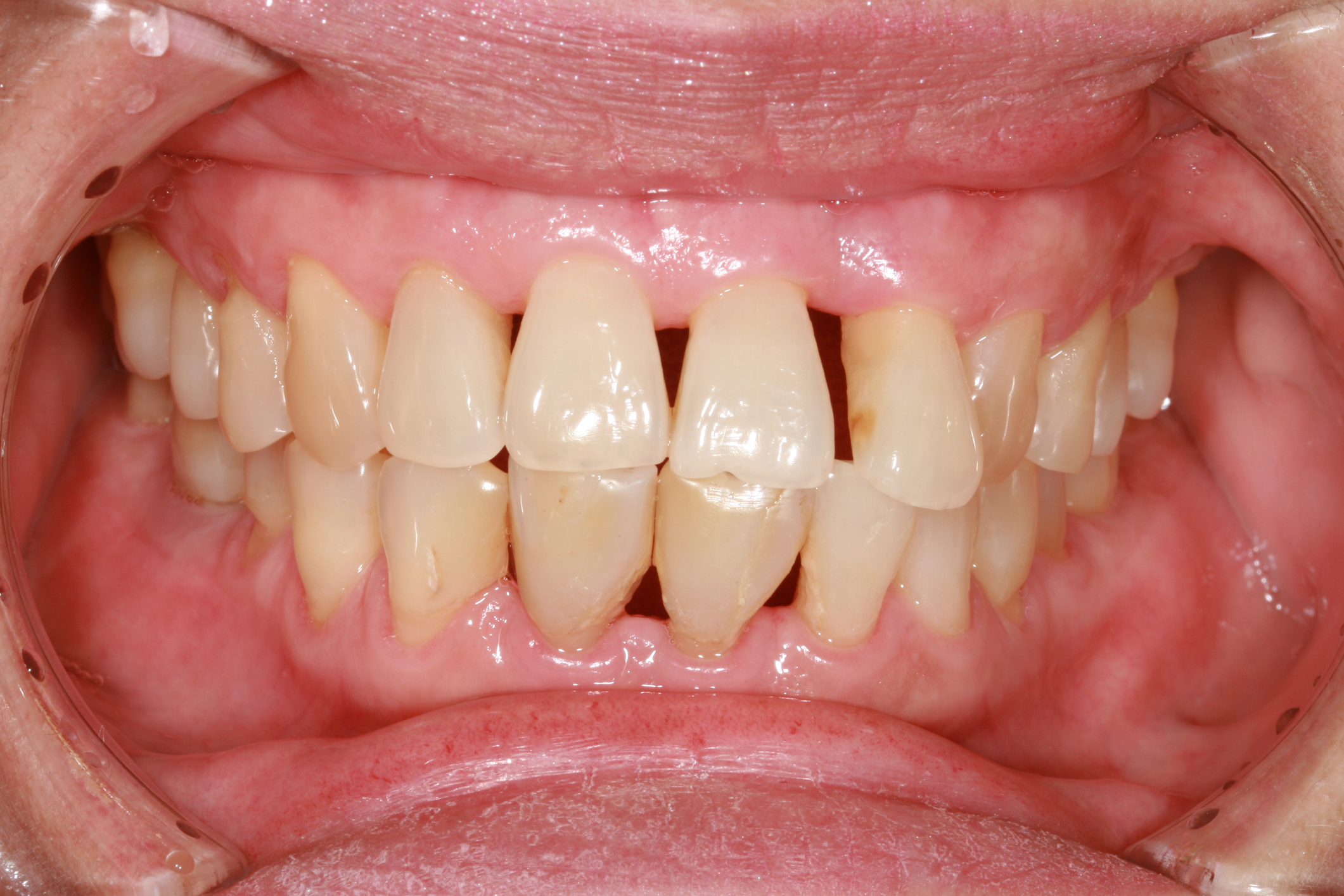
Gum recession.
How is your gum health? About half of all people over 30 suffer from periodontal disease, and this is the leading cause of gum recession. Gum recession is a problem, because when your gums recede too far, they can allow your teeth to fall out! Further, receding gums create pockets between the teeth and gums, and this can allow bacteria to grow and cause infections. In this way, even if your gum recession is not caused by periodontal disease, it can create an ideal environment for periodontal disease to progress. Once gums have receded, they don’t grow back, but there are some strategies you can employ to slow the recession. First, you need to know what is causing your gum line to recede.
- As mentioned, periodontal disease is a major cause of receding gums. The bacterial gum infections of periodontal disease can destroy not only gum tissue, but also the bone that holds the teeth in place. Catching periodontal disease in the early stage, called gingivitis, when the gums are simply inflamed, can help forestall its progression.
- It could be your genes. Sometimes, genetics just don’t work in your favor when it comes to your gums. About 30 percent of people have receding gums, leading to periodontal disease, no matter how well they care for their teeth.
- You might not be taking good care of your teeth. Poor oral hygiene can lead to tartar build-up, and when this happens, it can cause your gums to recede.
- On the other hand, you might be brushing too enthusiastically. Aggressive brushing can wear away your enamel and damage your gum tissue.
- Your teeth may be crooked. Believe it or not, misaligned teeth can wear on your gums. Teeth that don’t come together properly put too much force on the gums, causing them to recede.
- It might be hormones. Hormonal fluctuations, like the ones experienced during puberty, pregnancy, or menopause, can cause your gums to recede.
- Mouth trauma can damage your gums. If you get punched in the mouth or fall on your face, your teeth can be knocked loose, and your gums can sustain damage that causes recession.
- Your orthodontia may be the issue. It makes sense that using constant force to reposition your teeth could cause your gums to become inflamed and recede.
- If you grind your teeth, your gums might recede. In fact, receding gums may be your first warning sign that you grind your teeth at night.
- Tobacco use can lead to receding gums. Smoking and chewing tobacco are bad for your oral health in such a variety of ways that if you use tobacco, you really need to stop.
You might notice your gums receding, or you might notice some other warning signs. Your teeth may become sensitive to heat, cold, and sweets, or they may be sensitive when you’re brushing, flossing, or getting dental cleanings. You may also experience pain or discomfort near the gum line. Without treatment, gum recession could cause your teeth to feel loose. Fortunately, while receding gums won’t grow back, your dentist can help you slow the recession, as well as offering non-surgical and surgical treatments to improve the condition.
When you’re looking for a dentist to help with your teeth and gums, trust the dentist voted best in New York. At Park 56 Dental Group, we offer pediatric, prosthodontics, endodontics, oral surgery, Invisalign®, emergency, and sedation dentistry, all at the highest level of treatment. We serve the Midtown, Central Park, Upper East Side, Park Avenue, and all surrounding Manhattan and New York areas, with a patient-centered practice that has hours to fit your schedule. Schedule your complimentary consultation today by contacting us online or calling us at (212) 826-2322.
-
Is Coffee Ruining Your Teeth?

Fresh cup of coffee.
If you’re like most Americans, the day doesn’t quite start until you’ve had your morning coffee. Coffee is a delicious beverage that boosts your energy and may even be good for your heart health, but it can be hard on your smile, leaving your chompers less than pearly white. Beyond the stains it leaves behind, is coffee actually harmful? Could your morning cup of joe be ruining your teeth?
The answer is not as straightforward as you might think. If you’re a coffee drinker, you already know that it is a substance that stains. It will stain your favorite shirt, the upholstery in your car, your best tablecloth, and, yes, your teeth. It stains because it contains plant-based compounds called tannins that leave behind discoloration. The acidity in coffee helps with this staining because acid softens tooth enamel, making it easier for stains to penetrate the teeth. Because the stains seep through the enamel, though, coffee stains are difficult to remove with tooth brushing.
What’s more, as you get older, your tooth enamel begins to change, becoming more vulnerable and susceptible to staining. So, if you have a five cup a day coffee habit, you’re likely to have some noticeable stains after you’ve sustained it for several years. But beyond the yellowing teeth, does coffee do any damage?
There is, of course, the matter of coffee breath. Along with the acids, coffee introduces bacteria into your mouth, and it sticks to your tongue, causing halitosis. Fortunately, this is easily remedied by brushing your teeth after you drink coffee. Then, too, coffee is not alone in bringing bacteria into the environment of your mouth: any drink that isn’t water will do that. Fortunately, your saliva helps counteract the bacteria and allow your enamel to repair itself, but it’s important to brush and floss regularly to prevent cavities. Be aware that the sugar (or syrup) that goes into your coffee is much more damaging to your teeth than the coffee itself.
How can you continue to enjoy your coffee without staining your smile? You can’t, completely, but there are some things you can do to minimize the issue.
- Limit your coffee. Don’t drink coffee all day long, instead sticking to one or two cups of coffee at one time of day.
- Brush your teeth. Brushing with fluoride toothpaste after every cup is best because brushing removes bacteria and fluoride strengthens enamel. Bonus: you’ll lose the coffee breath. It is important to note, however, that you should wait about 30 minutes after your coffee to brush and floss, because immediately after you drink it your enamel will be soft enough to sustain damage from your toothbrush.
- Drink your coffee through a straw. When you use a straw, you can keep most of the coffee away from your teeth, which limits staining.
- Wash your coffee down with water. Water is always a good choice, whether you’re drinking coffee, eating food, or drinking alcoholic beverages. Why? Because water helps to keep the saliva flowing and rinses debris and bacteria away from your mouth.
- See your dentist regularly. Semi-annual cleanings can make a world of difference in the look of your teeth. Beyond just cleaning the teeth, they polish the enamel so that it can do a better job protecting your teeth from stains. Your dentist can also offer teeth whitening treatments to remove discoloration that has already appeared on your teeth.
If you are looking for a dentist to do those semi-annual cleanings and handle all your other dental needs, choose the dentist voted best in New York. At Park 56 Dental Group, we offer pediatric, prosthodontics, endodontics, oral surgery, Invisalign®, emergency, and sedation dentistry, all at the highest level of treatment. We serve the Midtown, Central Park, Upper East Side, Park Avenue, and all surrounding Manhattan and New York areas, with a patient-centered practice that has hours to fit your schedule. Schedule your complimentary consultation today by contacting us online or calling us at (212) 826-2322.
-
Reasons Why your Teeth are Temperature Sensitive
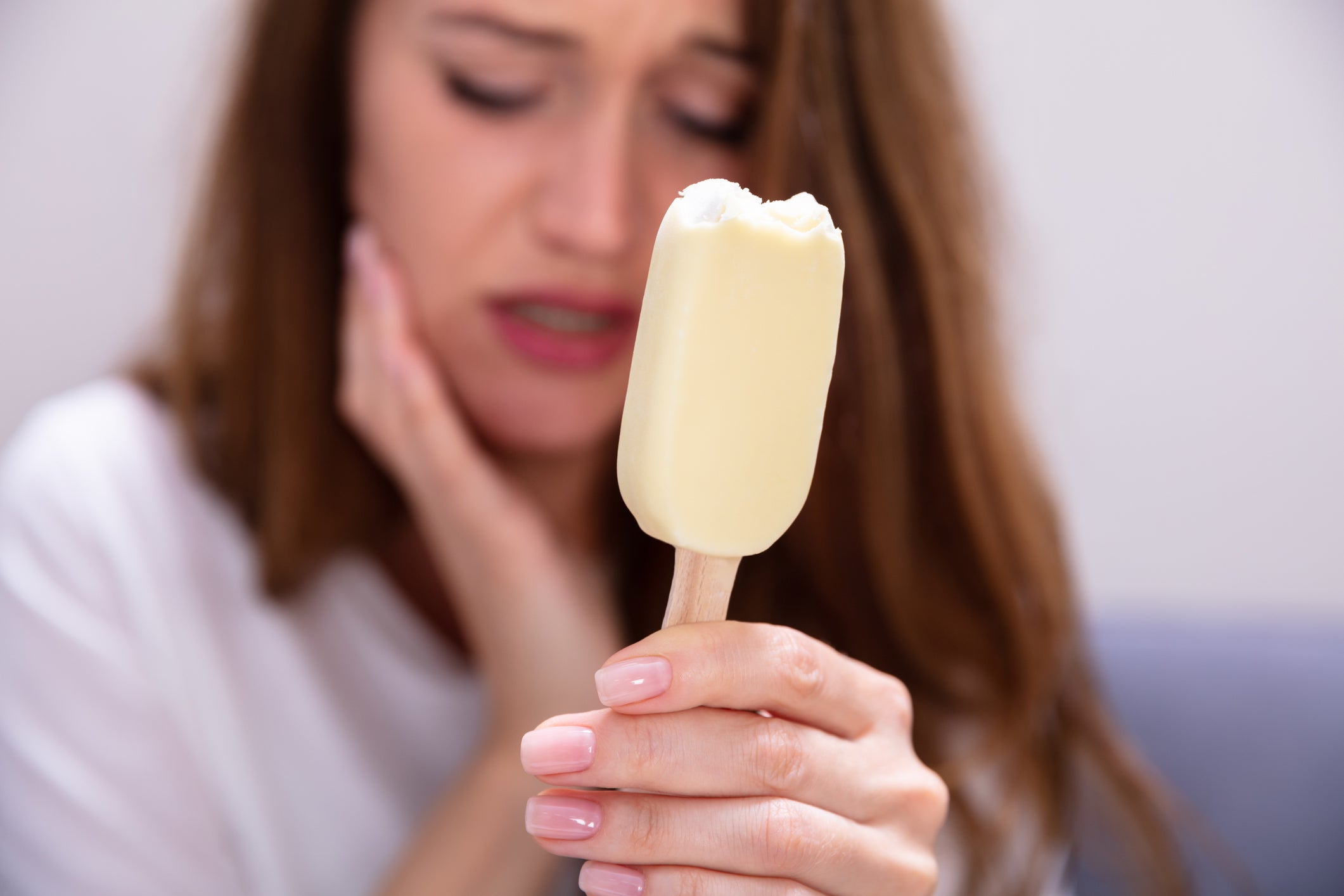
Do you find that eating ice cream or drinking hot coffee causes pain in your teeth? You may have sensitive teeth. It’s a common condition, affecting about 45 million people in the United States, but it can be painful and difficult. What causes teeth to be temperature sensitive? More importantly, what can be done about it?
Your dentist can help you determine the underlying cause of the sensitivity, though the reason teeth become sensitive is typically always the same. Teeth are made of three layers, the enamel, the dentin, and the pulp. The enamel is the hard, outer layer of the teeth, and it protects the softer, inner layers. Below the enamel is the dentin, which is made up of microscopic tubes leading to the innermost layer- the pulp. Within that pulp is the nerve system of the teeth, and dental sensitivity happens when the dentin layers or the nerves are stimulated by something hot or cold. The cause of this stimulation varies.
Cold sensitivity can be caused by tooth decay or gum disease. It can also be the result of brushing too aggressively, using abrasive toothpaste, or using a hard-bristled toothbrush, which can all wear away at the enamel. Tooth grinding or clenching can chip the teeth or damage tooth enamel, which can also cause sensitivity to cold. Receding gums and cracks in a tooth can leave that tooth vulnerable to the cold. If your teeth are sensitive to heat, though, it could have a different cause. Dental treatments like teeth whitening can lead to heat sensitivity, and so can teeth cleanings, root planning, and dental crown or filling placement. If you consume a diet that’s high in acids, found in foods like coffee, tomato sauce, and wine, it can lead to enamel loss and heat sensitivity. People struggling with gum disease often have sensitive teeth, because 80 percent of tooth sensitivity begins at the gum line.
If your teeth are highly sensitive and react to both heat and cold, the best thing to do is see a dentist to determine the cause and the best course of treatment. If the sensitivity is minor, though, you may be able to manage it at home. You can reduce the discomfort of mild temperature sensitivity by making a few changes.
- Instead of letting hot and cold liquids touch your teeth, use a straw.
- Reduce your consumption of acidic foods.
- Change to a softer bristled brush and be careful not to brush too hard.
- Switch to a toothpaste for sensitive teeth.
- Ask your dentist which mouthwash to use; some mouthwashes can irritate your dentin and pulp layers.
- Wear a mouthguard to prevent teeth grinding at night.
There are also treatments that dentists offer to improve dental sensitivity. If you find that your sensitivity is not improving after a few days, talk to your dentist about the best treatment for you. It could be as simple as fluoride therapy, or it could be a more involved procedure like a root canal or a gum graft. Dental restorations like a filling, inlay, onlay or crown can also protect damaged teeth and help with sensitivity. Nervous about seeing the dentist? We provide sedation dentistry for your comfort.
If you are looking for a dentist to help with tooth sensitivity, it makes sense to choose the practice voted Best in New York. At Park 56 Dental Group, we offer pediatric, prosthodontics, endodontics, oral surgery, Invisalign®, emergency, and sedation dentistry, all at the highest level of treatment. We serve the Midtown, Central Park, Upper East Side, Park Avenue, and all surrounding Manhattan and New York areas, with a patient-centered practice that has hours to fit your schedule. Schedule your complimentary consultation today by contacting us online or calling us at (212) 826-2322.
-
The Connection Between Your Dental Health and Vision
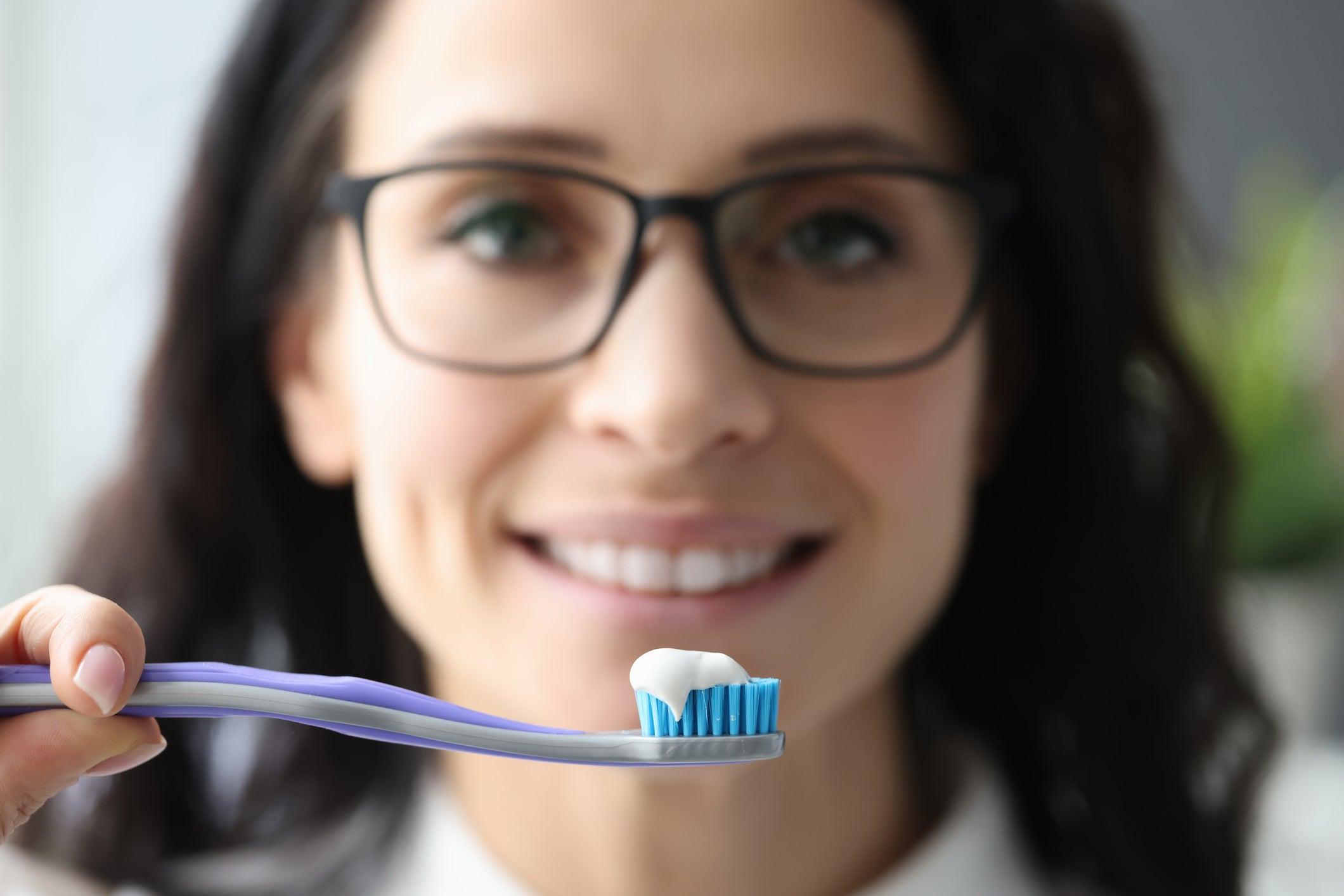
You care for your teeth to keep them healthy and strong, but, as you may know, poor dental health can negatively affect other systems in your body. There is a connection between diabetes and gum disease, for instance, and bacteria from tooth decay can impact your heart health. What you may not realize, though, is that there is a connection between your dental health and your vision. Could caring for your teeth actually protect your vision?
What is the connection between oral health and eye health? According to the American Academy of Ophthalmology, oral infections, including periodontal disease, cause an inflammatory response that can damage the optic nerve and cause vision loss. Additionally, people who have old mercury fillings may be at risk for vision problems that include iritis, color-vision issues, retinitis pigmentosa, and the formation of cataracts.
Poor dental hygiene is also known to contribute to the development of open-angle glaucoma. A degenerative eye disease, open-angle glaucoma results from increased fluid build-up in the eye that places damaging pressure on the optic nerve. Left untreated, this condition can cause vision loss and even blindness. One recent study found that the number of natural teeth a person has, an indication of the person’s dental care, is related to the risk of developing glaucoma.
While seeing an eye doctor is important for keeping your eyes healthy, it seems to be just as important to practice good dental habits. These habits include brushing teeth at least twice a day and flossing at least once, rinsing daily with an anti-bacterial mouthwash, having old fillings replaced with safer materials, and seeing a dentist for gingivitis treatment or a root canal for a badly diseased tooth. Eating a nutrient-dense diet and avoiding unhealthy practices like smoking and using your teeth for things unrelated to chewing food are also healthy habits. It is also a good practice to see a dentist twice a year for preventative cleanings and follow-up exams.
One of the most important factors when it comes to caring for your teeth is finding a good dentist. At Park 56 Dental Group, we offer pediatric, prosthodontics, endodontics, oral surgery, Invisalign®, emergency, and sedation dentistry, all at the highest level of treatment. We serve the Midtown, Central Park, Upper East Side, Park Avenue, and all surrounding Manhattan and New York areas, with a patient-centered practice that has hours to fit your schedule. Schedule your complimentary consultation today by contacting us online or calling us at (212) 826-2322.
RECENT POSTS
categories
- Uncategorized
- Cosmetic Dentistry
- Veneers
- Healthier Teeth
- Teeth Whitening
- Dental Health
- Video
- Dental Emergencies
- Invisalign
- Dental Implants
- Root Canal
- Sedation Dentistry
- Infographic
- Dental Crowns and Bridges
- Dental Anxiety
- Gum Disease
- COVID-19
- Bad Breath
- New York Dentist
- Cut out sugar
- General Dentistry
- Oral Health
- Oral Cancer
- Dry Mouth
- Gum Health
- Toothache
- Dental Sealants
- Cavities



